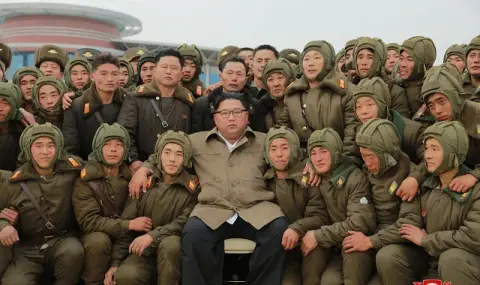< p>The Kremlin is likely to use the recent strategic partnership agreement with North Korea from June 2024 to deploy troops on the borders. This further reinforces Russian President Vladimir Putin's commitment to avoid mobilization for as long as possible.
Ukrainian publications Suspilne and Liga reported on October 15, citing anonymous military intelligence sources, that Russia's 11th Airborne Brigade formed a "battalion" of 3,000 people, composed of North Korean citizens (the numerical composition is far above that of a battalion).
This is what the Institute for the Study of War (ISW) says in its analysis.
This battalion is likely to be involved in ongoing Russian defense operations in the Kursk region. Up to 18 North Korean soldiers have already left their positions in the Bryansk and Kursk regions before the unit was engaged in combat operations.
ISW could not independently confirm it, but Russian officials did not deny the information on October 15.
Kremlin spokesman Dmitry Peskov emphasized in a comment for TASS that the agreement between Russia and North Korea is "unequivocal" in providing "mutual defense and security cooperation".
ISW has recently observed reports that a small number of North Korean personnel have been operating near the occupied city of Donetsk.
ISW has reported at length on Putin's continued reliance on crypto-mobilization and the formation of new volunteer formations to avoid the domestic consequences of conducting a general society-wide mobilization or another partial mobilization wave.
This dilemma became particularly acute for Putin after Ukraine's invasion of Kursk Oblast in August 2024, as the Russian military had to accommodate new manpower requirements introduced by the need to defend an entirely new front within Russia itself. However, Putin's response is consistent with his way of generating Russian forces during the war so far, and he maintains his reluctance to more seriously counter the invasion with a wider mobilization, instead focusing on the ad hoc creation of new units to territorial defense, redeployment of existing parts of Ukraine and use of conscripts.
The Russian Ministry of Defense (MoD) proposed on October 14 to expand the criteria for the status of Russian combat veterans to include soldiers who defended themselves against an "invasion of Russia" or "armed provocations on the state border", which probably includes conscripts and local territorial defense elements involved in countering Ukraine's invasion of the Kursk region.
Putin signed a law allowing the head of Russia's Investigative Committee, Alexander Bastrykin, to remain in his post despite reaching retirement age, demonstrating his desire to keep handpicked loyalists from his inner circle in positions of power.
Bastrykin turned 71 in August 2024 and has held his post since 2011. Current Deputy Chairman of the Russian Security Council and then President of Russia Dmitry Medvedev lowered the age limit for civil servants from 65 to 60 in 2010 ., but Putin raised it to 70 in 2013 when he returned to the presidency.
Putin has also recently promoted younger members of his inner circle, such as 52-year-old presidential aide Alexei Dyumin, to positions in the Kremlin.
